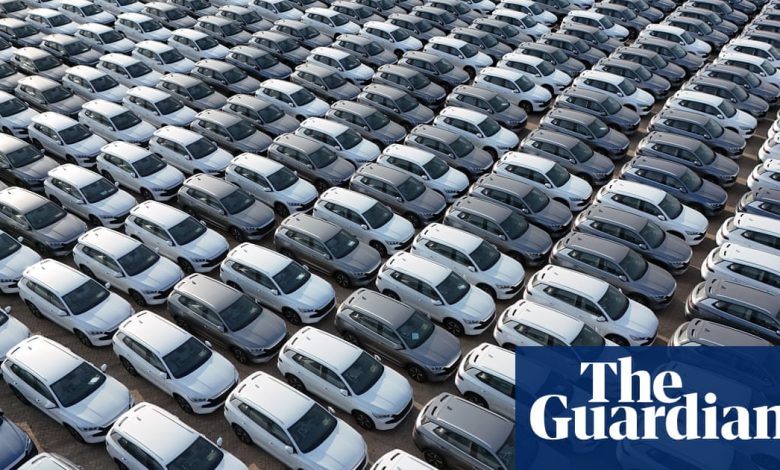EU expected to impose import tariffs on Chinese electric vehicles | International trade

The EU is expected to notify China that it will impose tariffs on electric vehicle imports this week, firing the weapon against a potential summer trade war with Beijing.
A formal preliminary unveiling of the tariffs could come as early as Wednesday, after a long-running investigation into China’s state subsidies for car manufacturing is expected to conclude that massive support continues to be concentrated on the electric vehicle sector.
Chinese manufacturers are already bracing for new import duties, but experts expect Beijing to retaliate with countermeasures that could affect a range of EU exports to the country, ranging from cognac to dairy products.
Following a meeting with Chinese President Xi Jinping in Paris last month, European Commission President Ursula von der Leyen, warned that “the world cannot absorb China’s excess production,” saying the EU “will not hesitate” to protect industries and jobs within the bloc.
The anti-subsidy investigation began last October amid suspicions that China is flooding the EU with cheaper electric cars as a result of overcapacity and reduced domestic consumer demand.
It is one of more than a dozen investigations being conducted by the EU into Chinese state aid, including an investigation into export of solar panels, heat pumps and wind turbineswhich, according to the energy sector, undercut the EU by 50%.
Experts suggest Beijing will see the imposition of tariffs as a test of strength, given that the electric car sector fuels China’s export success.
They predict that Xi will not waver from the national bid he has made to dominate the world’s green technology sector through electric cars, solar panels and batteries for electric vehicles, instead viewing trade as a battlefield. where he can set the conditions.
If the EU investigation concludes on Wednesday, as expected, that Chinese carmakers have gained a competitive advantage, Beijing will be given formal advance notice of the tariffs and will have four weeks to provide any evidence to rebut the European case.
Any decision to apply the duty permanently must be supported by member states in November, some 13 months after the investigation began.
If imposed, the tariff schedule would include three tiers: individual rates for the sample of companies investigated by the EU, which include the world’s largest EV seller, BYD; average rate for companies that responded to inquiries but were not fully investigated; and a residual rate for those who were not investigated at all.
Consultancy Rhodium Group, which specializes in China research, said it expected tariffs to be set at 15%-30%, which would be easy for conglomerates such as BYD, which launched its entry-level Dolphin hatchback in the EU last summer on price just under €30,000 (£25,000). As part of its marketing push, it is also UEFA’s official partner for the Euro 2024 football championship.
“Some China-based manufacturers will still be able to generate comfortable profit margins on the cars they export to Europe because of the significant cost advantages they enjoy,” Rhodium said.
after the promotion of the newsletter
“Tariffs in the 40-50% range – perhaps even higher for vertically integrated manufacturers like BYD – are likely to be needed to make the European market unattractive to Chinese EV exporters.”
China has long maintained that it has not subsidized its auto sector, and even if it did, its exports help Western countries meet their green goals.
Earlier this week, during a tour of Spain and Portugal, Trade Minister Van Wentao insisted that cooperation with the EU was a winning strategy. “I hope the European side will give up protectionism and return to the right path of dialogue and cooperation,” Wang said, urging Spain to be mildly “concerned” about a potentially costly rift.
He said that the overcapacity that the EU keeps talking about is not an excess of production capacity, but an excess of concern, and the so-called market distortion is not a market distortion, but a thinking distortion.
Western governments say China can easily modulate its strategy, absorb tariffs and compete on a level playing field, but it cannot be allowed to dominate the future clean energy and technology market.
European consumers have already paid a heavy price in higher energy bills after Russia’s invasion of Ukraine exposed the EU’s overdependence on Russian gas, and EU officials are determined not to repeat the mistake with China by pursuing an official strategy of “reducing of risk’.



